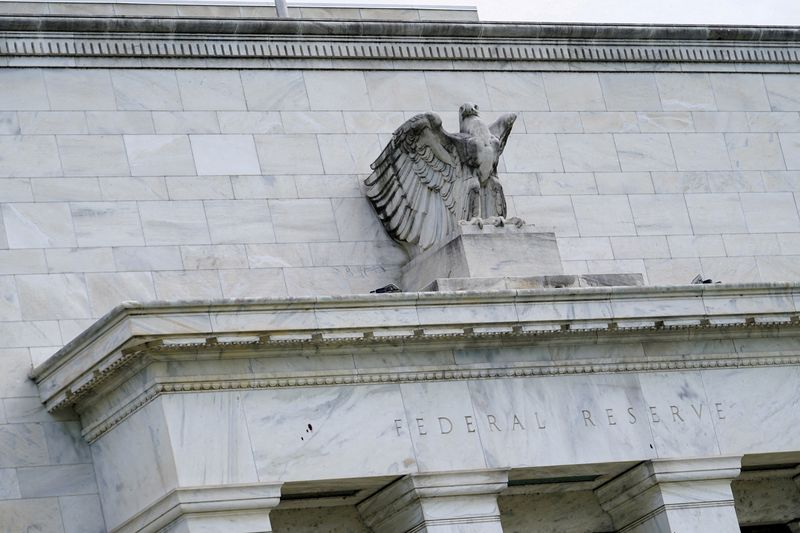By Jamie McGeever
ORLANDO, Florida (Reuters) -Debate over the Federal Reserve's independence is bubbling up again and could become a red-hot issue for market watchers if Donald Trump wins the Nov. 5 U.S. presidential election.
The former president and Republican candidate said in July that he would allow current Fed Chair Jerome Powell to serve out his term through 2026, though he added "especially if I thought he was doing the right thing." And last month Trump said the sitting president should have "at least (a) say" in Fed decisions.
While the Fed and other central banks have attained greater operational independence in recent decades as they have adopted inflation-targeting, their political and legal independence is a lot less clear-cut.
In theory, central banks set policy purely on cold, hard economic numbers, impervious to the government of the day's political whims, influence, or pressure. This is wishful thinking, but that's not necessarily a bad thing.
Consider the developed world's responses to the Global Financial Crisis and COVID-19 pandemic. They featured interdependent – and often coordinated – fiscal and monetary policy that helped countries avoid economic, financial, and, potentially, social catastrophe.
Of course, this resulted in skyrocketing government debt, much of which is now held by the central banks themselves. While the debt was purchased on the secondary market, rather than via direct debt monetization, it's still effectively one arm of government lending to another.
Doesn't this politically-led largesse risk a hyper-inflationary disaster, violating the fundamental pillar of nearly every central bank's mandate: controlling inflation?
True, inflation spiked following the Fed's massive stimulus efforts. But inflation was well below the U.S. central bank's target for more than a decade after the GFC – despite the Fed's bloated balance sheet – and prices only soared in 2022 when vast money creation and trillions of dollars in direct cash transfers were combined with global supply-chain snarls and an energy crisis sparked by Russia's invasion of Ukraine.
So, yes, coordinated fiscal and monetary efforts are likely responsible for some of the inflation surge. But two years later, the U.S. economy is still humming along and inflation is heading back toward the Fed's 2% target. Was this outcome really so bad then, especially considering what could have happened if officials hadn't acted aggressively?
Robert Skidelsky, a professor and UK lawmaker, is of a very different political hue than Trump. But in "The Myth of Central-Bank Independence," an article published in May, he asks why government shouldn't have more of a say in monetary policy.
"Interest rates affect not just the value of money but also unemployment, growth, and distribution, it could be argued that monetary policy, like fiscal policy, should be managed by governments accountable to voters," he wrote.
RANKING SURPRISES
In "The Limits of Central-Bank Independence," an article published last month, Stefan Gerlach, a former deputy governor of Ireland's central bank, argues that central bank independence isn't an all-or-nothing proposition.
"Firm political support for the objective of maintaining low inflation is essential; but complete legal independence does not seem to be a necessary condition for achieving it," he writes, citing the case of Singapore.
The Monetary Authority of Singapore has achieved average inflation of almost 2% since its monetary policy framework was introduced in 1981, although it uses the exchange rate rather than domestic interest rates as its main policy lever.
Yet four government ministers sit on the MAS board and nobody doubts that Singapore's government could - if it wanted to - exert full control over monetary policy. In short, Singapore has achieved consistently low, stable inflation without genuine central bank independence.
Indeed, Singapore scores poorly in countries ranked according to central bank independence in a new paper published last month by Barry Eichengreen and Joan J. Martinez of the University of California, Berkeley and Nergiz Dincer of TED University.
The rankings are based on 16 criteria, including the length of the governor's term of office and provisions for dismissal, the means for resolution of conflict between the central bank and government, limitations on lending to the government, and the role of the central bank in fiscal matters.
Singapore's ranking is 114 out of 120 countries based on one methodology and 113 out of 119 countries on another. For comparison, the Fed is ranked at 29 in the first table and 43 in the second.
As the global response to the GFC and pandemic have shown, central banks are working more closely with governments today than they have for decades, while still maintaining the veneer of independence, and this arrangement has been fairly effective.

Central bank independence might be a fiction, but perhaps it's a useful one.
(The opinions expressed here are those of the author, a columnist for Reuters.)
(By Jamie McGeever; Editing by Paul Simao)